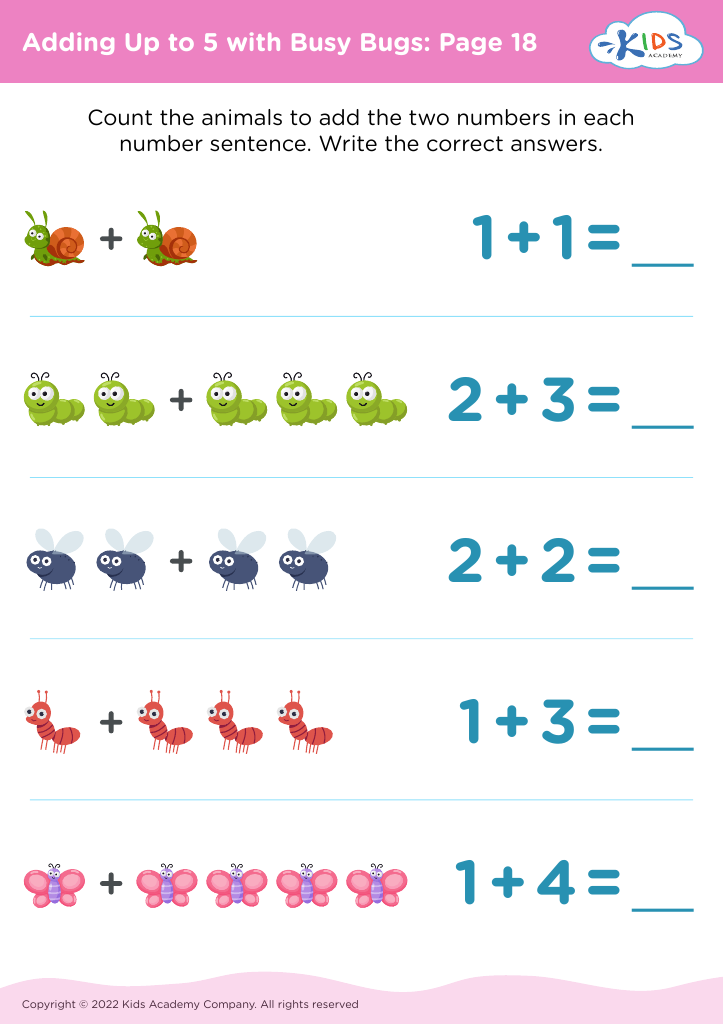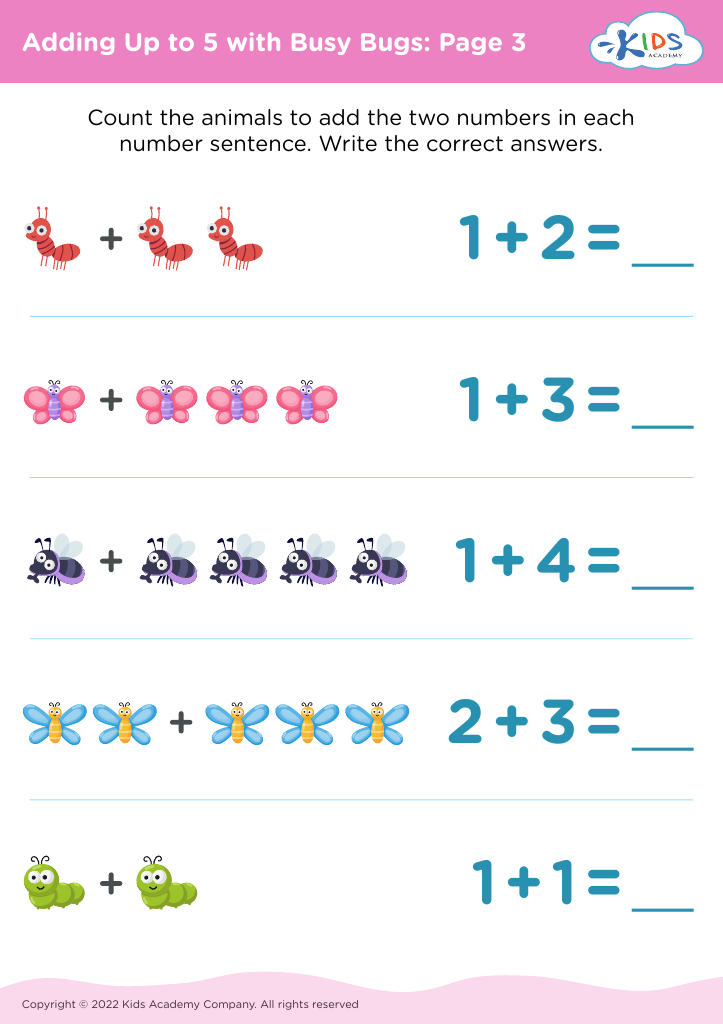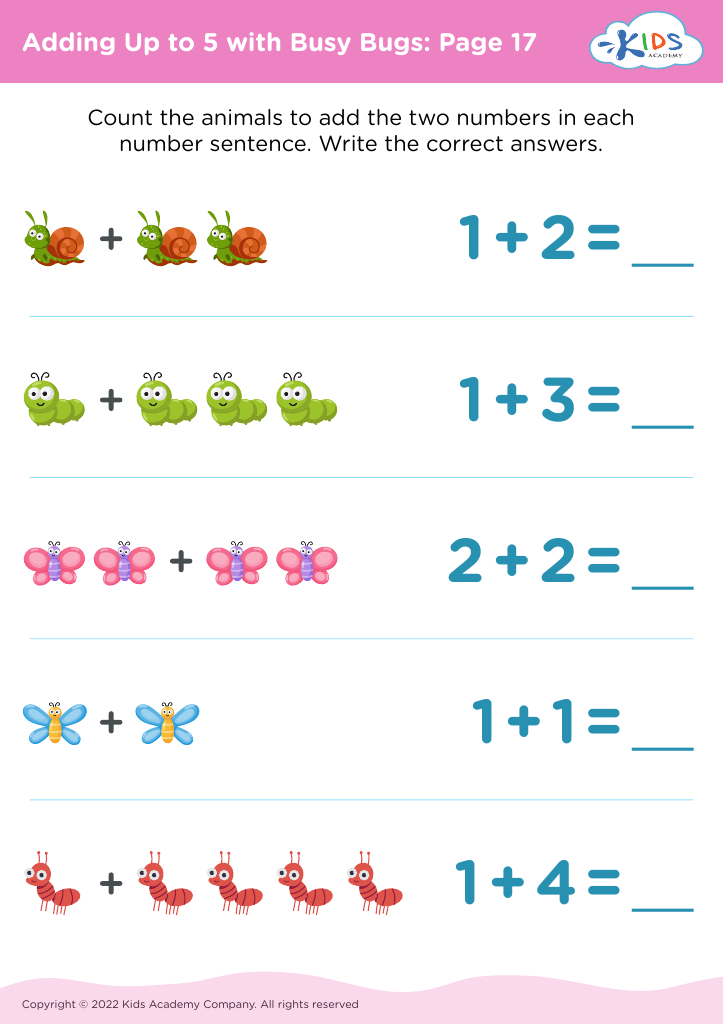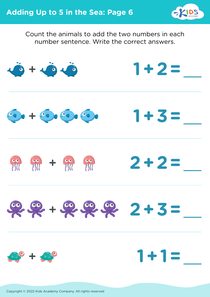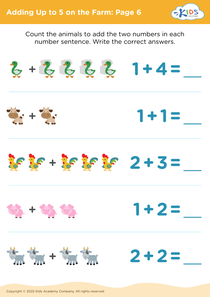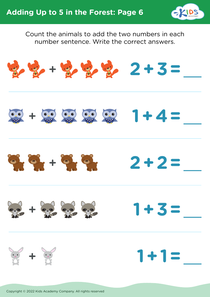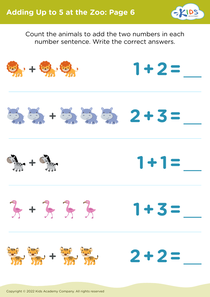Developing Concentration Adding with Busy Bugs Worksheets for Ages 4-7
3 filtered results
-
From - To
Enhance your child's focus and math skills with our "Developing Concentration Adding with Busy Bugs" worksheets, specially designed for ages 4-7. These engaging activities incorporate fun, colorful bug themes to make learning addition exciting and enjoyable. By solving problems through interactive exercises, children strengthen their concentration, boost memory retention, and improve problem-solving abilities. Each worksheet provides a blend of challenges that adapt to your child’s skill level, ensuring they develop at their own pace. Perfect for at-home learning or classroom use, our Busy Bugs worksheets are an excellent way to combine playtime with essential educational skills and foster a love for learning!
Developing concentration in young children, particularly ages 4-7, is crucial for their cognitive and emotional growth. Programs like "Busy Bugs" not only make this process enjoyable but also enhance essential skills through engaging activities. At this age, children's brains are rapidly developing—laying the foundation for future learning and success in school and everyday life.
Teachers and parents should prioritize concentration-building strategies as they help improve attention spans, problem-solving abilities, and organizational skills. By participating in activities like “Busy Bugs,” children learn to focus on tasks, which is essential for completing assignments, engaging in discussions, and participating in group activities. Additionally, concentration influences a child's ability to manage emotions and cope with distractions, fostering better social interactions.
Moreover, as children excel in concentrating on tasks, they build confidence and self-esteem, shaping positive attitudes toward learning. For parents and teachers, investing in children’s ability to concentrate is an investment in their overall development, helping them thrive academically and socially. Ultimately, encouraging concentration through engaging and playful activities can lead to better learning outcomes and a lifelong love for exploration and education.

